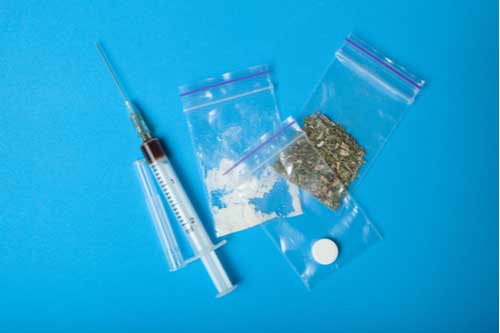Drug crimes carry serious consequences for anyone involved. Even minor possession charges can alter a juvenile’s life trajectory, as the charges can have lasting consequences.
While the Tennessee justice system is designed to get help for children charged with possession of drugs rather than imparting severe punishment, the charges can still have an outsized and overbearing consequence for the individual.
Individuals charged with juvenile drug offenses are required to undergo substance abuse treatment as a means to help them overcome their drug dependency. Moreover, through a pretrial diversion, the juvenile might have their charges dismissed, especially if they comply with all the conditions stipulated during the probation period.
However, in the long term, the charges will affect the juvenile in various ways. Having a record of juvenile crimes is not an easy obstacle to overcome.
Effects on Educational Opportunities
In the immediate aftermath of a drug charge, the educational opportunities of the juvenile will be severely impacted. A drug charge can have severe consequences on a teenager’s academic life. For instance, they might get suspended from school in most cases, especially if the drug charge emanates from a school environment.
This means the student will have to forego their education in a school setting during the suspension period, which can negatively impact their overall progression.
Later on in life, the drug charge can also limit the juvenile’s educational opportunities by losing eligibility for student loans and grants. Education is expensive, and the vast majority of students require financial assistance to further their education. A drug charge record makes it difficult or even impossible to find financial aid you might need to pursue a college education.
Finally, there is the issue of getting college admission. In most cases, colleges are particularly keen on avoiding admitting students with a drug charge. Getting admitted to a higher learning institution to further your education is difficult.
How Juvenile Drug Offenses Affect Participation in Sports
Being charged with juvenile drug offenses will cause you to lose your eligibility to attend school functions and participate in sports (and other extracurricular activities). Even after you serve a possible suspension from school, chances are you will not be allowed to participate in any activities in school.
This can be highly detrimental for teens interested in pursuing a career in sports. The foundation of your skills is laid while in school.
Your ability to participate in sports while in school allows you to acquire new skills, hone your skills, compete with your cohort in your age bracket, and improve, which is crucial for anyone interested in pursuing a sports career.
As such, being prohibited from participating in sports due to juvenile drug offenses can have life-changing effects.
How Juvenile Drug Offenses Affect Driving Privileges
In most cases, part of the penalties for possessing drugs is to lose your driving license. It is common for Tennessee courts to issue orders revoking driving privileges for juvenile offenders, curtailing their ability to move around. The curtailed freedom impedes their ability to find work and affects their academic opportunities.
In addition to having your freedom curtailed, you may be placed under probation or supervision as punishment for possessing drugs. With probation in place, a juvenile delinquent loses their ability to travel out of state. This affects your educational and employment opportunities through the probationary term.
Being charged with a juvenile drug offense might leave you with a permanent record, which is accessible by law enforcement officers in all subsequent traffic stops. Such a record makes all routine traffic stops a high-tension affair in the future.
How Juvenile Drug Offenses Affect Job Prospects
Just as the drug charge affects your educational opportunities, so does it affect your employment opportunities. For starters, when your pursuit of education is curtailed by inaccessibility to loans and grants or certain fields being off-limits for someone with a drug charge record, it excludes you from pursuing career paths in those fields.
For instance, juveniles with a drug charge will find it difficult, if not impossible, to pursue a career in law or medicine. Signing up for law and medical school is difficult if you have a drug charge record.
Additionally, there is difficulty in getting job offers when you have a juvenile drug charge record later in life. Many employers are wary of hiring someone with a felony or misdemeanor drug charge.
In some instances, having a juvenile drug offense record exposes someone to automatic job disqualification among many employers. As such, a drug charge will curtail the opportunities a juvenile has in the future.
Effects of Incarceration at a Juvenile Facility
As you might appreciate, juvenile facilities are not summer camp environments. In fact, they can cause lasting traumatic memories in your child.
Consider this: Nationally, 1 in 10 juveniles report being sexually abused by guards or other inmates while in juvenile detention facilities, which can affect your child for the rest of their life.
As such, throughout the court case, it is essential to fight for your child’s emotional and mental well-being. Ideally, you want to help your child recover from a drug problem rather than cause more harm.
Call Our Criminal Defense Attorneys Today About Your Juvenile Drug Offense Charges
At Nash Law, we work with parents and their children to mitigate the long-term effects of a juvenile drug offense. Our efforts and strategies focus on reducing the penalties emanating from the charges and petitioning the court to expunge any qualifying offenses from the juvenile’s records.
Contact us today at 615-NASH-LAW to help restore the brightness of your child’s future if they face drug charges.



